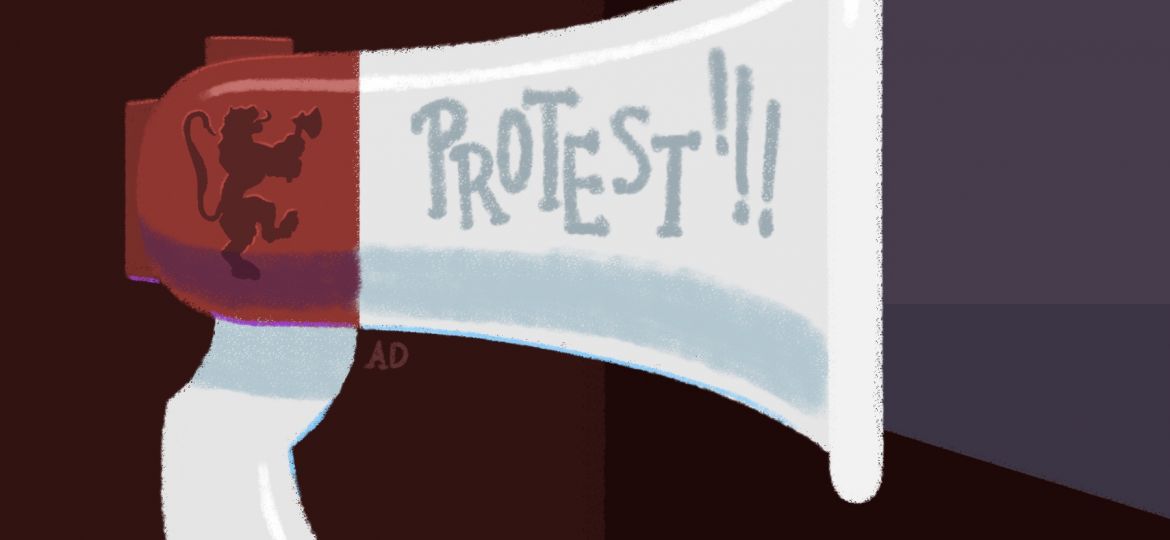
Following the 7 Feet for 7 Shots protest and counter-protest, it became clear how much more work St. Olaf needs to do to support and uplift its Black, brown and minority students. The protest illuminates many policies that the College needs to change, including the silencing of the Policy on Student Demonstration that went into effect in 2017 after school-wide protests against racism.
The Policy on Student Demonstration outlines the types of protest that are welcomed and the ones that are banned or restricted. The policy begins by emphasizing the encouragement and support of free speech and then goes on to describe St. Olaf’s restrictions on the matter. Amplified music, blocking walkways, not cleaning up after an event and generally disrupting the usual flow of business are some of the restricted behaviors, all of which were a part of the 2017 protests.
The adoption of the Policy on Student Demonstration presents a major issue. It shows that those protests were not supported by the school. St. Olaf should be proud of students for standing up for what they believe in. Instead, the response was to silence students and stop a similar protest from happening again.
The policy is extremely restrictive. The fact that St. Olaf wants to remain orderly even when students are demanding to be recognized shows a lack of care for the voices of the unheard.
The emphasis on free speech within the Policy presents a false sense of open discussion, when in actuality St. Olaf limits protest but not hate speech. The existence of the Olefront and Olefrontier Instagram accounts exhibits that harassment, hate speech and blatant racism are a part of our campus. There should always be disciplinary action in these circumstances. St. Olaf needs to be crystal clear about the types of discourses that are encouraged and the ones that are banned. With vague and positive language like that used in the policy, it is unclear where the administration stands in supporting minority students, who are often the ones protesting.
I will not deny that the policy seems fairly standard in comparison with the policies of other private institutions similar to St. Olaf. This does not make it right. I want to see administration unafraid to be criticized and in full support of the voices of their students no matter what.
Reading the current policy took me back to high school where we were asked to have a permission slip to do future walk-outs after the national walkout for gun control following the Marjory Stoneman Douglas shooting. It felt important to me not to sign that permission slip but to get suspended or sacrifice my grade in solidarity with the movement. That was the point of the walkout. The policy felt inconsistent with the merits and ethics of protest in general.
Nevertheless, the privilege of protesting securely is not ubiquitous for all students. The vagueness of the policy might leave students wondering what will happen if they don’t follow it, leading to questions about losing financial aid and other disciplinary actions. These questions are scary, especially for minority students who already feel like their place on campus is not always secure.
As a community, we need to thwart the continued narrative that allowing free speech jeopardizes and oppresses the feelings of people who disagree. If the same amount of energy and emphasis was put into stopping white supremacy as was put into restricting demonstration, St. Olaf might be in a better, more encouraging place.
I believe an updated policy needs to state a rejection of racism and hate speech, describe explicitly the disciplinary action that might occur if it is broken, loosen overall restrictions on protests and clarify the importance of accountability at a private institution.
Caroline is from Pasadena, CA.

